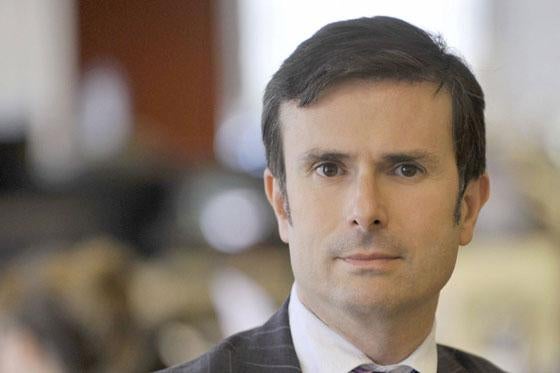
BBC business editor Robert Peston has admitted to “feeling the pain” of the private sector over the dominance held by the corporation’s news services but questioned whether liberalisation would help aid democracy.
Delivering the Richard Dunn Memorial Lecture at the Edinburgh International TV Festival this weekend, Peston said he sympathised with the assessment made by James Murdoch, News Corp chief executive for Asia and Europe, that the BBC was too large an organisation.
Peston said that much of what the BBC does, especially online, may look like “state-subsidised unfair competition.”
But he questioned whether there was “any rational basis for believing that withdrawing all regulation and subsidy from the news market would be any less costly to our way of life”.
Peston mulled whether a wholly-liberalised commercial news market would ensure that everyone has “access to the kind of news and financial information they need and deserve”.
Delivering the MacTaggart lecture to the Edinburgh International TV festival on Friday Murdoch said the size and ambitions of the BBC were “chilling”, accused it of mounting a “land grab” before going on to criticise media industry regulator, Ofcom, calling for regulation to be scaled down.
Like many other BBC executives Peston was critical of Murdoch’s lecture.
Peston said: “There is a debate about two kinds of fairness. There is the fairness of ensuring a level playing field for players in a commercial market. And there is the fairness of the distribution of information and knowledge to all who need it.
“Having just lived through the greatest failure in history to distribute financial resources in an efficient and equitable way, we certainly shouldn’t assume that a commercial digital market in news will distribute information in a way that would support a healthy democracy.
“The big question is whether the incipient structure of our new digital news industry will promote or undermine the healthy discussion that is necessary for democracy to thrive.”
Peston said that most audiences did not care about which platform they got their information, as a result traditional distinctions between television journalists, radio journalists and print journalists were “quite close” to being obsolete.
He said the traditional business model of news providers was being wrecked by the recession and needed overhauling. However, individual news organisations may be less powerful, mainly as a result of a global 24/7 news cycle.
Charging for online news, he said, would become the norm as advertising revenues dwindled.
However, he questioned whether existing rules restricting cross-media ownership were fit for a digital world: “Is there logic, for example, to the prohibition of a merger between a Channel Three franchise and a national newspaper with more than a 20 per cent market share?
“We need to come up with a robust new way of measuring market share in news – one which properly captures both the rise and rise of Google in the ad market and also doesn’t seek to treat a television viewer, a newspaper reader, an internet user and a radio listener as though they are different customers of different industries.”
Calling for change to the regulatory system, he said, did not mean he was arguing for a more homogenised news market.
He said: “Lest anyone think I am arguing that choice in news provision no longer matters, I am in fact arguing the opposite. More than ever we need a choice of providers of high quality, authoritative news. The question is how to ensure there are enough competing groups with the resources to invest in news.”
Email pged@pressgazette.co.uk to point out mistakes, provide story tips or send in a letter for publication on our "Letters Page" blog
